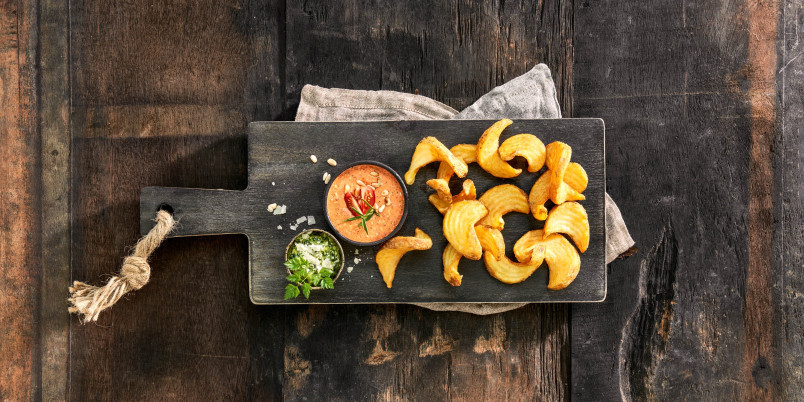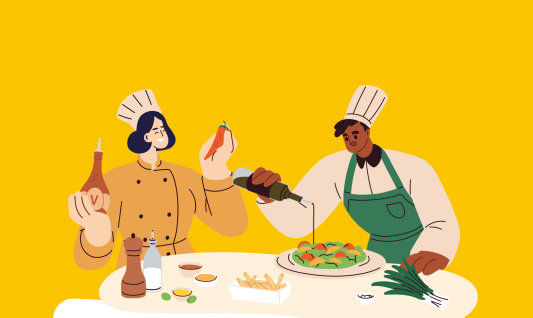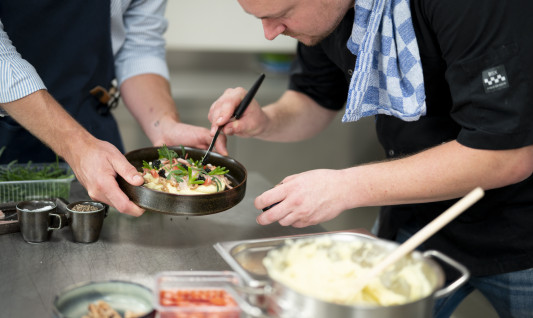
Snacking in and out of home is on the rise.
As we researched the consumer need states in 5 of our biggest markets, we found that its gain could be considered as a logical consequence of the increased importance of several emotional drivers.
While our frozen potato products are still primarily served as a side dish next to the plate, stand-alone snacks are gaining ground. In developing potato markets, such as Spain and Germany, snacking habits are growing even faster and already lie above 10% of preferred consumption moments. But there’s also a growing taste to gather with friends or family and relax with a snack in France, the UK and the Netherlands.
You see these in fast-food chains, pubs and tapas bars. Why? People look for more food indulgence to feel good, offer comfort and escape from reality. It’s there that the snack excels, tapping into many emotional drivers and benefits such as:
Satisfying a craving
Taste indulgence
Comfort seeking
Snacks provide a total experience
Snacks to share are perfect for mood management and have become especially relevant in the Spanish and German market. When people indulge, they want it to be really worth it. Chefs need to think beyond dishes that provide guaranteed taste and look even more for a total experience when consuming food.
Craving and indulgence show to be the second and fourth most important driver in out of home consumption in all other markets as well (ranging between 81% and 91%). The only exception is the Netherlands, where indulgence stands at 54% as a driver for consumption. Hunger is, naturally, still the primary driver to eat.
Goodbye starter, hello snack!
In third stands affordability. This is also where snacking options fill a gap created by the current cost-of-living crisis. When going out, people are making a conscious budget choice, often ditching the starter courses and setting their sights on the snacking options on the menu chart. Snacks show to be a cheaper alternative and allow people to connect by sharing multiple snacks, tapping into a shared sense of belonging. Furthermore, it allows them to experiment with different tastes and textures.


